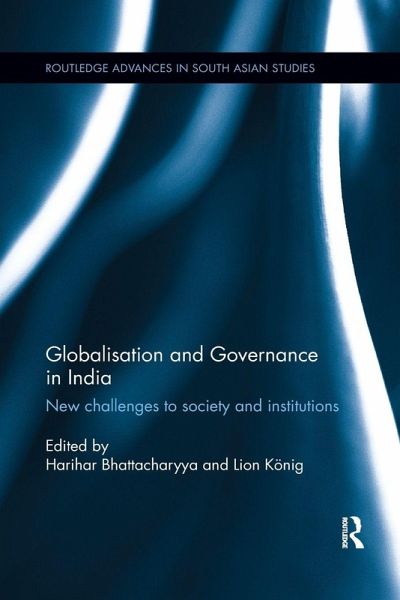
Globalisation and Governance in India
New Challenges to Society and Institutions
Herausgeber: Bhattacharyya, Harihar; König, Lion
Versandkostenfrei!
Versandfertig in 1-2 Wochen
62,99 €
inkl. MwSt.
Weitere Ausgaben:

PAYBACK Punkte
31 °P sammeln!
In 1991, India officially embraced the policy of neo-liberal reforms by signing the GATT agreement, which exposed the country, its society, culture and institutions to the various forces of globalisation. Globalisation as such may not be new to India, for the country has been exposed to the external cultures and civilisations for millennia, but the post-1991 reforms policy marked a significant shift, from a predominantly social welfare state and a command economy to a predominantly market driven one. This book examines some important aspects of the complex interface between India's globalisati...
In 1991, India officially embraced the policy of neo-liberal reforms by signing the GATT agreement, which exposed the country, its society, culture and institutions to the various forces of globalisation. Globalisation as such may not be new to India, for the country has been exposed to the external cultures and civilisations for millennia, but the post-1991 reforms policy marked a significant shift, from a predominantly social welfare state and a command economy to a predominantly market driven one. This book examines some important aspects of the complex interface between India's globalisation and Indian society, culture and public institutions.




